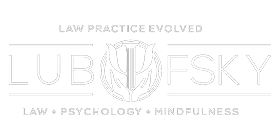Psychotherapists and psychologists in California face a wide range of legal issues that require careful attention and consideration. From corporate formation to employment relationships and professional supervision issues, to ethics defense before the Board of Behavioral Sciences or Board of Psychology, it is essential for practitioners to be aware of the legal landscape and to take appropriate steps to protect themselves, their patients, and their practices.
Corporate Formation
One of the first legal issues that psychotherapists and psychologists in California face is choosing the appropriate business structure for their practice. This decision involves weighing factors such as liability protection, tax implications, and the ability to raise capital. Psychotherapists and psychologists may choose to form a sole proprietorship, partnership, limited liability company (LLC), or corporation.
A sole proprietorship is the simplest and least expensive business structure, but it offers little liability protection. A partnership is a more complex structure that involves two or more individuals, but it also provides little liability protection. An LLC is a popular choice for psychotherapists and psychologists because it offers the flexibility of a partnership with the liability protection of a corporation. Finally, a corporation is the most complex and expensive business structure, but it offers the greatest liability protection and the ability to raise capital through the sale of stock.
Employment Relationships and Professional Supervision Issues
Psychotherapists and psychologists in California may also face legal issues related to their employment relationships and professional supervision. For example, if a psychotherapist or psychologist employs other mental health professionals, they must comply with a range of employment laws, including wage and hour laws, anti-discrimination laws, and workers’ compensation laws.
In addition, psychotherapists and psychologists who supervise other mental health professionals must ensure that they are providing appropriate levels of supervision and complying with state regulations. This includes monitoring the work of their supervisees, ensuring that they are practicing within their scope of practice, and providing appropriate feedback and guidance.
Ethics Defense before the Board of Behavioral Sciences or Board of Psychology
Finally, psychotherapists and psychologists in California may face ethics defense issues before the Board of Behavioral Sciences or Board of Psychology. These boards are responsible for enforcing the ethical standards and regulations for mental health professionals in California.
Common issues that may lead to ethics defense before the board include allegations of professional misconduct, such as engaging in sexual relationships with patients, failing to maintain appropriate boundaries, or practicing outside of one’s scope of practice. In addition, psychotherapists and psychologists may face ethics defense issues related to their advertising and marketing practices, such as making false or misleading claims about their qualifications or services.
To defend against ethics complaints, psychotherapists and psychologists must demonstrate that they have followed all applicable ethical standards and regulations. This may involve providing evidence of appropriate documentation, adherence to ethical codes of conduct, and participation in continuing education and professional development activities.
Psychotherapists and psychologists in California face a wide range of legal issues, from corporate formation to employment relationships and professional supervision, to ethics defense before the Board of Behavioral Sciences or Board of Psychology. By understanding these issues and taking appropriate steps to protect themselves, their patients, and their practices, mental health professionals can ensure that they are practicing ethically and legally, while also providing high-quality care to their patients.
